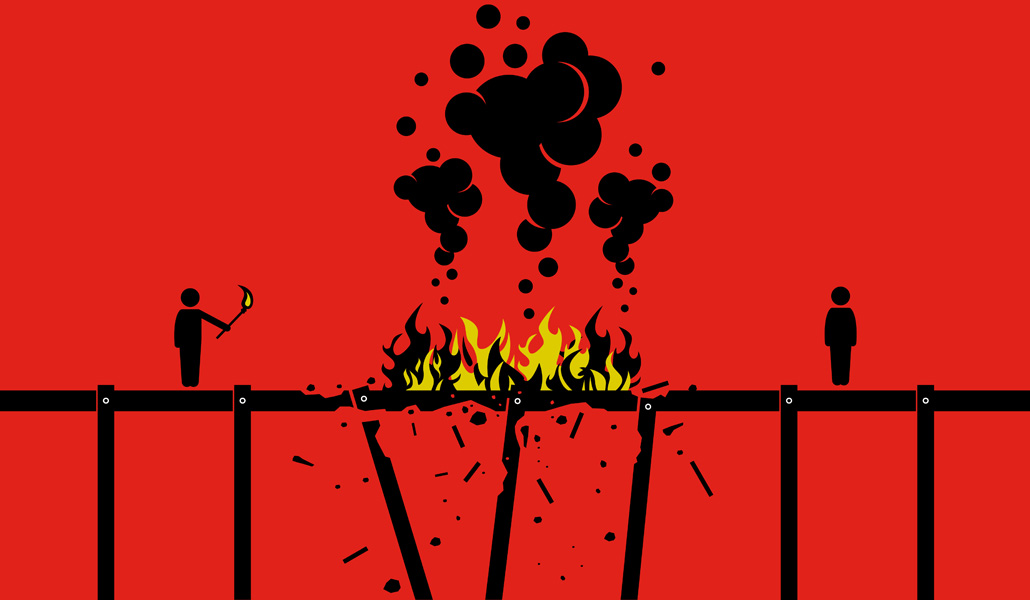Evil is the destruction produced by hatred; that destruction that, through the media, we Spaniards are witnessing in the father who murders his daughters to destroy the mother. The case that shocks public opinion these days in mid-June 2021 is the reproduction of a classic archetype, described by Euripides in his tragedy Medea, which I analyze in The other humanisms, from Thémata publishing house, recently reissued.
In the homicide, hatred operates like this, as José Julio Cabanillas and Jesús Cotta collect in Tongue on palate, also edited by Thémata: «When you die / you won’t realize it. / You never sleep: hatred prevents you; / has much more strength than fatigue; / He collects it in the bosom of his vertigo / and thus multiplies it many times / making it infinite, unsustainable. / And even when fatigue is already supreme / hatred triumphs over him, and overcomes him. / He picks it up and increases it again. / It can tear your own body / and soul to pieces. And it is useless: / even if you are completely mutilated / you will still have the strength to curse / and to violate intimacies … / Because hatred will always be stronger, / stronger than the already infinite fatigue. / And you won’t be able to sleep. Never. Never. / And then you won’t even / you can die: / you won’t be able to realize it when you die / because for a long time before / you were living in hell ».
Hatred is the destructive reaction, which pays with destruction, the destruction that one has suffered by being deprived of what one loved the most. What one loves the most can be the wife or husband, children, parents, property, fame, whatever, and that which one loves above all is the reason and the foundation of one’s own living and being, because one exists and lives for it.
As Juan de la Cruz says, the soul is much more where it loves than where it encourages, and if someone destroys that which one loves, one feels that deep down within himself he is destroyed, that he does not want to continue existing, that he wants to be nothing and he wants nothing but destruction. Then you react by wanting revenge, wanting to communicate what you have inside, that, when you have been destroyed, you are nothing, nothing more than nothing. To hate is to wish that something that exists ceases to exist, that it becomes nothing. It is the opposite of love, which consists in wanting people who love each other to have a being, a fuller existence, to exist in happiness.
In Euripides’ tragedy, Medea feels that her husband Jason has betrayed her and her children by wanting to leave her and take the daughter of the king of Corinth, her host, as a wife. Then Medea mounts a plan to kill the king’s daughter and the children that Jason has had with her, and to leave Jason alive, so that he lives a long time in the anguish of being left without what he loved, so that he lives in nothingness .
“Who forgives but God?”
Hatred is not cured by revenge. It just eases. Because revenge does not bring loved ones back to life. Hatred is cured with forgiveness. To forgive it is to re-donate what had been destroyed, that is, to re-donate the being to the destroyed people. Normally that is not within the reach of human beings. They cannot give being to those who have been destroyed. But neither can they stop hating, wanting to destroy, communicating what is left inside them. Men cannot to forgive, converting the hatred they carry inside into love, converting the nothing that has become, into being fruitful and generating life. Men cannot forgive, we do not have that capacity. “Who can forgive sins but God alone?” (Mark 2, 7 and Luke 15, 21).
Men, the most we can do is ask for help to be able to forgive. And when we receive that help, we receive it with the passage of time, when the wound heals and the hole of nothingness is gradually healed. It stagnates when in the blackness of the insomniac desire for revenge there are pauses of rest, when the vigil of fury is neglected. The body saves the soul from its stubbornness for rest from sleep. Then the murderer can perceive a flash of beauty and peace in a small animal, in a stray dog seeking shelter, in humble bougainvilleas, in a crying child. You can feel a bit of beauty and peace, and you can smile kindly.
That smile expresses that, in the desert of his inner nothingness, a small bud of love has been born that is no longer pure nothing, that something of his being has been returned to him. That smile expresses that he is no longer a desert of life, you are welcome, that he has been forgiven, that love has begun to grow in himself, and that the moment is approaching when he will also be able to to forgive.
The author taught the course A history of evil June 21-23 at San Dámaso University
–
–
–
–


